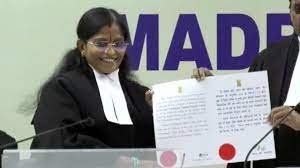According to the Delhi High Court, writ petitions cannot be submitted to the courts against a social media platform such as X (formerly Twitter) because it is not a branch of the State and does not perform any government or public functions [Sanchit Gupta v Union of India & Anr].
X is a private entity that does not perform a public function or discharge a public duty, despite its critical role in information dissemination and influencing public opinion, according to Justice Sajeev Narula.
The Court said, “While ‘X’ plays a critical role in information dissemination and influencing public opinion, its core function is to provide a platform for expression—a service that has ‘public discourse’ as consequence, yet is private in operation. There is no directive, statutory or otherwise, from the government that delegates traditional state functions to ‘X’. The platform is not mandated to carry out public duties. ‘X’ is voluntary and user-driven, distinguishing it from entities that operate under a compulsion of law or provide services that are essential public utilities”.
The Court made these conclusions in response to a writ petition submitted by Sanchit Gupta, who was disputing X’s decision to suspend his X/Twitter handle.
Gupta claimed that the principles of equity, impartiality, and natural justice had been violated.
He also included the Union of India as a party to his case and asserted that the government is responsible for ensuring that constitutional rights are not violated by private entities, particularly those that have a substantial impact on public communication and discourse, such as X Corp.
Conversely, the Court rejected the arguments and concluded that there was no evidence to suggest that the Central government had failed in its regulatory responsibilities or that legal obligations had been disregarded, necessitating the High Court’s intervention through a mandamus.
“In light of the above, the present writ petition, in the opinion of the Court is not maintainable and is accordingly dismissed along with pending applications,” the Bench ordered.
Sanchit Gupta was represented by attorneys Ankit Shah, Avneesh Kumar Upadhyaya, Megha Tyagi, Kriti Jain, and Tarun Arora.
Central Government Standing Counsel Mukul Singh and advocate Seema Singh represented the Union of India.



